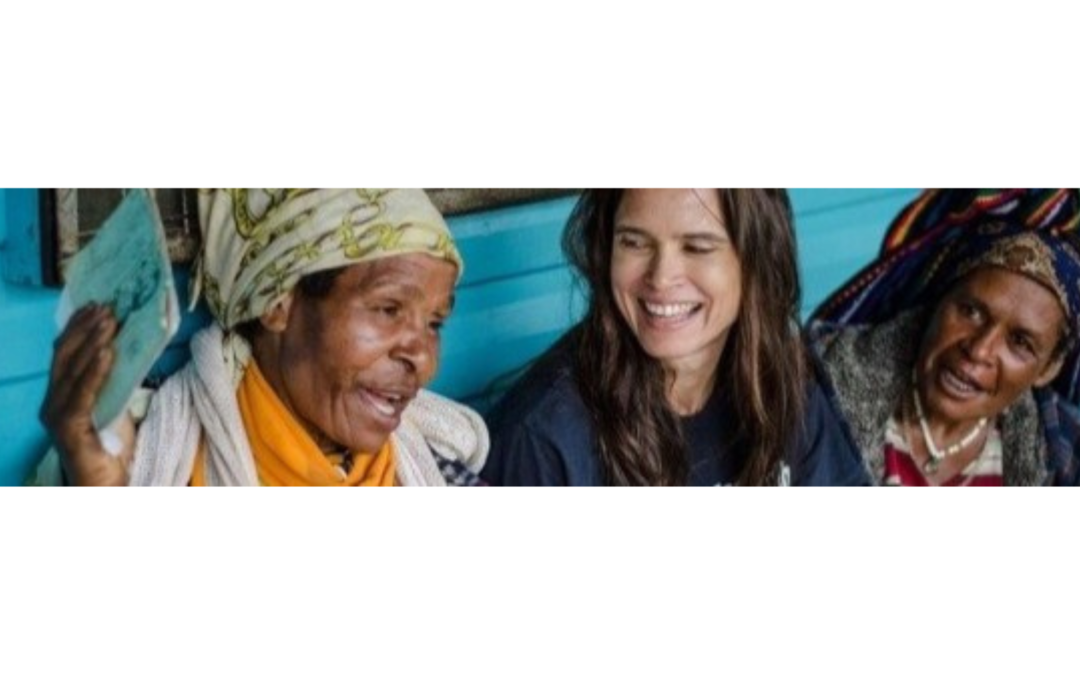I recently had the pleasure of welcoming Stephanie Copus Campbell, Australia’s Ambassador for Gender Equality, to my podcast. Stephanie has an impressive list of accomplishments and is deeply involved in various foreign policy initiatives related to gender equality. In our conversation, we delved into her experiences, achievements, and the lessons she’s learned along the way. The full interview is available at the end of this blog.
The Early Lessons of Leadership
Stephanie fondly recalls her first true experience of leadership during her primary school years. She took charge of organising a school play with a choir, a task no one else seemed able to handle. Despite the play not being spectacular, the experience taught her that inspiring leadership is more effective than bossing people around. She also learned the importance of working with people, inspiring them, and creating a shared vision.
The Role of Gender Equality in Society
As Australia’s lead advocate on gender equality, Stephanie works under the portfolio of Minister Penny Wong, Australia’s Foreign Minister. She emphasises that when every person has equal opportunities to reach their full potential, society as a whole benefits. She has witnessed the positive impact of gender equality throughout her long career, including happier and more prosperous families, healthier children, higher incomes, and more peaceful and stable communities.
Stephanie also highlights the economic benefits of gender equality, noting that countries with gender equality tend to be more prosperous. However, she acknowledges that women and girls often face greater barriers than men and boys in reaching their full potential due to entrenched social norms and gender perspectives. These barriers can manifest in various sectors, such as education, workforce, and accessing health services.
A Journey from Alaska to Australia
Stephanie’s upbringing in Alaska shaped her values and understanding of community. After studying international relations in the UK, she met her husband, Angus Campbell, who is now the Chief of the Defence Force in Australia. They made the decision to be together, which led Stephanie to drop out of her PhD program and move back to England. They eventually settled in Perth, Western Australia, where Stephanie began her career with the Australian Red Cross, focusing on international humanitarian law.
Balancing Dual Careers and Family
Stephanie and Angus have supported each other’s careers, despite the challenges of being in different countries for extended periods. They have had open discussions and made sacrifices to make their dual careers work. Stephanie emphasizes the importance of gender equality in their relationship and how it has enabled her to pursue her career in foreign policy.
The Importance of Vision and Inspiring Leadership
Stephanie believes in the importance of setting a vision and inspiring people to work towards it. She shares an example from her experience in Papua New Guinea, where the urgency of the situation motivated people to step up and take risks. She emphasises the need for a permissive environment for failure, where people can learn from their mistakes and grow.
Leading a Gender Equality Life
When asked for advice on leading a gender equality life, Stephanie emphasises the importance of self-care and having a well-rounded life. She encourages individuals to prioritize their own well-being, as it enables them to better support others. Stephanie shares her own self-care practices, such as surrounding herself with animals and exercising daily.
Everyday Heroes
Stephanie shares a powerful story about an incredible woman she met in Papua New Guinea. This woman was a midwife in a remote village, working without running water or electricity. Despite the challenging conditions, this woman prioritised the needs of her community and found ways to provide holistic care with limited resources. Stephanie greatly admires her and often thinks of her when facing tough times.
The Importance of Self-Care and Support
Stephanie emphasises the importance of seeking support, especially as one advances in their career. She personally relies on good friends and her husband for debriefing and emotional support. She also mentions the significance of finding someone to talk to after witnessing traumatic events or experiencing vicarious trauma.
In conclusion, my conversation with Stephanie Copus Campbell was enlightening and inspiring. Her dedication to gender equality, her leadership experiences, and her commitment to self-care and support are lessons we can all learn from.
THE COMPLETE INTERVIEW:

